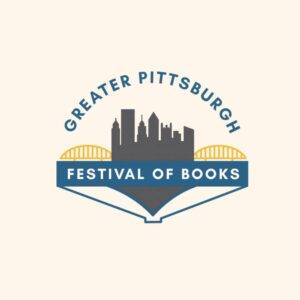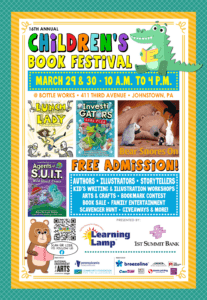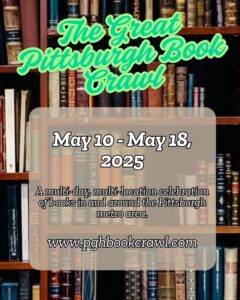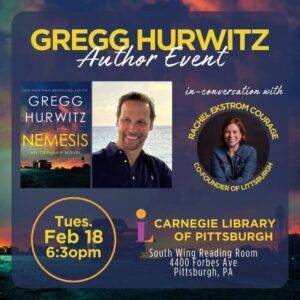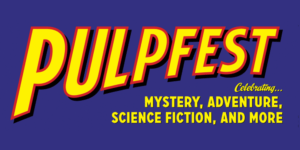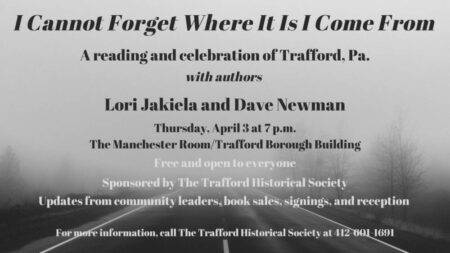Bonnie MacBird, author of Art in the Blood, a new Sherlock Holmes novel, will be speaking at Mystery Lovers on Monday, October 26th. This novel has one of the best blurbs we’ve seen in recent memory — from Poirot‘s Captain Hastings, Hugh Fraser (“Holmes & Watson live!”) — and MacBird has had a long Hollywood career (including film development exec at Universal, the original screenplay for the movie TRON, three Emmy Awards for documentary writing/producing, and more). Below, she answers questions about Holmes, Hollywood, Pittsburgh, and writing what you love!
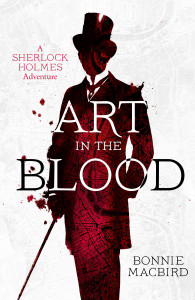 As a life-long Sherlockian, what inspired you to tackle your own interpretation?
As a life-long Sherlockian, what inspired you to tackle your own interpretation?
Two things. One is a quote from Nicholas Meyer, author of The Seven Percent Solution, my favorite pastiche. Of Conan Doyle’s sixty Sherlockian tales, he said: “We’ve read them all, and we want more.” I wanted more Holmes, and wrote the book I wanted to read. And second, the artistic challenge of emulating a writer whose combination of unique characters and brilliant style have made him timeless. In order to do that I’d have to delve deep into the why and how of Conan Doyle’s style and techniques, and I knew this would be a delicious challenge, and worth my time. Not to mention fun.
Who’s your favorite “on screen” Sherlock? Robert Downey, Jr., Benedict Cumberbatch, Michael Caine?
Well, much as I love Michael Caine the actor, it would NOT be his Sherlock Holmes. I’ve enjoyed many over the years, Jeremy Brett in the early Granada series is perhaps closest to the man I see while reading, but I found Robert Downey Jr,’s manic and layered Holmes, Benedict Cumberbatch’s posh, sarcastic yet vulnerable Holmes, and even William Gillette’s humorous, valiant interpretation all speak to me. From long ago, I enjoy Basil Rathbone (my first Holmes) and a recent discovery, Eille Norwood. So many good Holmes actors! Brett, Downey and Cumberbatch, however, primarily.
Tell about some of your favorite writing, acting or producing projects…
Early days on Tron were great fun, especially the research part with the computer scientists (I later married my technical advisor, computer visionary Alan Kay!) and getting improv comedy classes going for the animators. Both of these were very early on in the process. Later I enjoyed writing, producing and directing two musicals and a play, and writing several more… working with good actors to bring your words to life is a thrill… they show you things about your own work you did not know. I also enjoyed studying Shakespeare acting at Oxford for a summer, and performing in a lot of classical theatre in LA, including leading roles in Gilbert and Sullivan’s Ruddigore and later the musical Oh What A Lovely War. I also find that I love teaching (screenwriting at UCLA Extension Writers Program) because I get adults at all levels of professional skills, and watching new lights turn on for these creative writers is deeply satisfying. I’ve had students who have won Emmy’s, produced blockbusters, and more. It’s a thrill to participate in developing these already very smart, talented people.
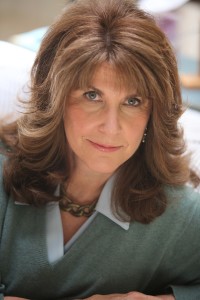 Does your background in film as a writer and producer, and in theater and music, inform your fiction?
Does your background in film as a writer and producer, and in theater and music, inform your fiction?
Absolutely, all of these experiences pour into the craft. Being a story editor for scripts helped me develop a strong sense of structure, pacing, and what works and doesn’t work in storytelling. My own screenwriting trained me to write with brevity, because screenplays are almost like haiku in their spareness. And my playwriting and work as an actor helped me go deeper into character work and motivation. My theatre training also gave me a stronger understanding how story and character interact, as well as the discipline of dialect work and other physical aspects of the craft, which oddly, and somewhat surprisingly affect my writing.
How does the experience of creating stories for Hollywood differ from doing so on the page?
Being inside a character’s head is a luxurious viewpoint for a screenwriter/playwright who is used to being limited to writing only what the audience can see or hear. It’s a chance to wax poetic (too much so if one is not careful), but it’s also a rich opportunity to overlay humor and viewpoint on the story Watson is particularly fun for this. Also, one can imply worry, premonition, or wondering, which all help with the narrative drive. And, as every screenwriter/novelist will tell you, film is a collaborative process which is exciting, but the screenwriter is not particularly respected in Hollywood and the changes wrought during the development/filming process sometimes make one shudder. As a novelist you have more say over your final product.
Why do you think interest in the character of Sherlock Holmes has endured for so long?
So many reasons. Sherlock Holmes is a superhero but with vulnerability and mysteries within his own character. Because big parts of the man (his childhood, his education, his true feelings about women, just for starters) are unknown, we tend to fill in these with bits of ourselves. We all identify then, with this amazing brilliant genius, and we feel smart in his company. He’s a man of honor but not a perfect man, as Cumberbatch’s Holmes says “I may be on the side of the angels but don’t think for a moment that I am one.” Also the friendship with Watson in these stories is paramount to Holmes’ appeal. We would all like a friend like Watson. And we’d all like to BE a friend like Watson. These stories kind of speak to our “higher selves” while entertaining us, chilling us, and making us laugh.
Do you have any advice for writers or screenwriters who are just starting out?
I teach screenwriting at UCLA Extension and spent a year developing a curriculum for getting new writers in the rhythm of writing daily, of writing first drafts at speed, of learning when and how to rewrite, and when and how to take notes from others. There is so much to discuss here, but the basics are really to develop a practice of writing every day, and to experiment with your own process until it’s as productive as you can make it. Secondarily I tell anyone who wants to write to read, read, and read. All of us have had our reading abilities compromised by the way we consume information on electronic media. We now browse and surf instead of follow a linear argument. Our attention spans have narrowed. One must take a very active stance to combat this, by reading every day, preferably from a page, not a screen. I could go on for a book length and in fact am doing so. But to leave with a big one, don’t worry about writing “what you know”. Research what you don’t know. Instead, write “what you love”. Only then will you have the stamina for the long effort. Writing is a marathon, not a sprint and it helps to be in love with your story and characters, and that love will shine through on the page.
What comes to mind when you think of Pittsburgh?
Smokestacks. But I didn’t see any. Instead I saw a beautiful, beautiful city with great universities. And very nice people.
This should be an incredibly interesting author appearance. Bonnie has been a fan of #SherlockHolmes since she was a…
Posted by Mystery Lovers Bookshop on Monday, October 19, 2015









